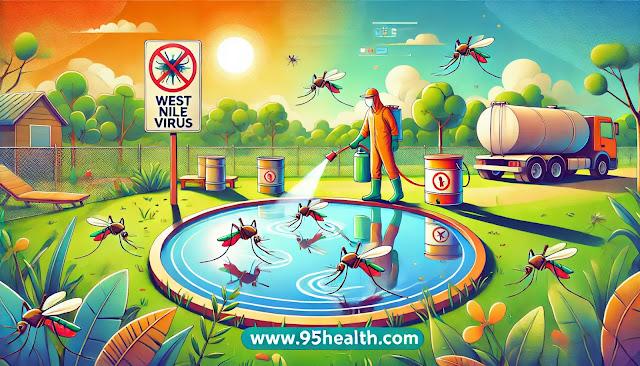Williamson County Resident Tests Positive for West Nile Virus
A recent report from KXAN News has confirmed that a resident of Williamson County, Texas, has tested positive for West Nile virus, marking a significant public health concern. West Nile virus is a mosquito-borne illness that can cause severe health complications in humans. This blog post aims to provide a detailed overview of the situation, the risks associated with West Nile virus, and steps you can take to protect yourself and your community.
The Incident in Williamson County
According to KXAN News, the infected individual is currently receiving medical care and is expected to recover. Health officials are urging residents to take preventive measures to reduce the risk of mosquito bites and potential virus transmission. The case highlights the ongoing need for vigilance and public health efforts to control mosquito populations and prevent the spread of mosquito-borne diseases.

Understanding West Nile Virus
West Nile virus is primarily spread to humans through the bites of infected mosquitoes. While most people infected with West Nile virus experience no symptoms, about 1 in 5 develop mild symptoms such as fever, headache, body aches, joint pains, vomiting, diarrhea, or rash. In rare cases, the virus can cause severe neurological illnesses such as encephalitis or meningitis, leading to symptoms like high fever, neck stiffness, stupor, disorientation, coma, tremors, seizures, or paralysis.
Preventive Measures
To minimize the risk of West Nile virus infection, it is crucial to follow these preventive measures:
- Eliminate Standing Water: Mosquitoes breed in stagnant water. Regularly empty and clean containers that collect water, such as flower pots, bird baths, and buckets.
- Use Mosquito Repellents: Apply insect repellent on exposed skin and clothing. Look for repellents containing DEET, picaridin, or oil of lemon eucalyptus.
- Install Screens: Ensure that windows and doors are fitted with screens to keep mosquitoes out.
- Wear Protective Clothing: When possible, wear long-sleeved shirts and long pants to reduce skin exposure, especially during dawn and dusk when mosquitoes are most active.
- Support Community Efforts: Participate in community clean-up campaigns and support local mosquito control programs.
The Role of Health Authorities
Health authorities, including the Centers for Disease Control and Prevention (CDC) and the Texas Department of State Health Services (DSHS), are actively monitoring the situation and providing guidance to the public. The CDC offers extensive resources on preventing mosquito-borne diseases and tracking West Nile virus cases across the country.







A few summers ago, I remember a local mosquito control advisory being issued after heavy rains in my area. It made me realize how quickly West Nile Virus can spread in regions like Williamson County. According to the CDC, most people infected don’t show symptoms, but 1 in 150 develop serious neurological issues. As someone with a public health background, I’ve seen how effective community awareness and mosquito control efforts can be in reducing cases. Have you noticed an increase in mosquito control efforts in your area, or do you think more can be done?